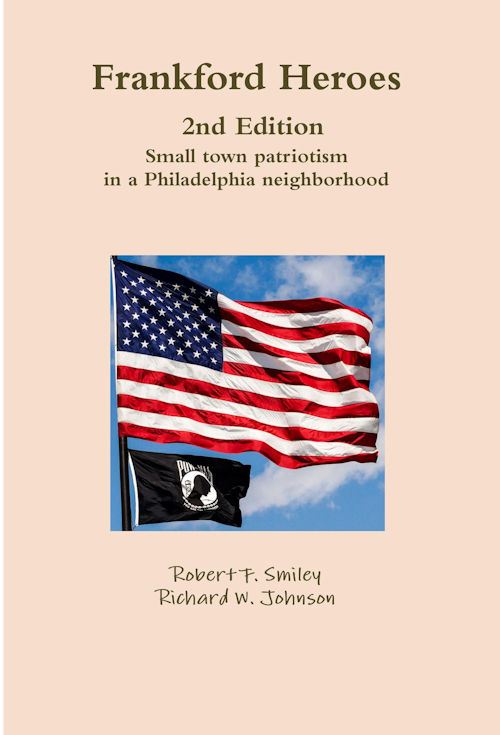This is from our contributor Joe Menkevich.
Tag: Thomas Jefferson
The First Fourth of July
There are written references to Thomas Jefferson being in Frankford on July 4, 1776 but attempts to verify the accuracy of those accounts have not been successful. Joe Menkevich has done exhaustive research in exploring the story that Jefferson was here on the first Fourth. Read the results of his research here in the Frankford Chronicles and see some more related documentation on our history corner page under Quick Links. Read the entire document. Some of the most interesting material follows in the research notes.
The Second of July
Joe Menkevich reminded me today of what I had read last year in the John Adams Biography. Adams wrote to his wife Abigail on July 3rd, 1776 about the momentous event that had taken place the day before on July 2nd. That was the day the vote was taken to declare independence. It took until the fourth to hammer out the exact language that everyone would accept in the formal declaration.
Here is a link to the Pennsylvania Gazette for July 3, 1776. (images owned by the Accessible Archives). It is just one line on the far right column of page 2 – stuck between the news.
Joe supplied these sources:
“The Second Day of July 1776, will be the most memorable Epocha, in the History of America.”
full document link is below:
Thomas Jefferson had this to say:
1821. Jan. 6.
At the age of 77, I begin to make some memoranda and state some recollections of dates & facts concerning myself, for my own more ready reference & for the information of my family. …
http://memory.loc.gov/master/mss/mtj/mtj1/052/0500/0517.jpg
… It appearing in the course of these debates that the colonies of N. York, New Jersey, Pennsylvania, Delaware, Maryland, and South Carolina were not yet matured for failing from the parent stem, but that they were fast advancing to that state, it was thought most prudent to wait a while for them, and to postpone the final decision to July 1.
but that this might occasion as little delay as possible a committee was appointed to prepare a declaration of independence. The commee were J. Adams, Dr. Franklin, Roger Sherman, Robert R. Livingston & myself. Committees were also appointed at the same time to prepare a plan of confederation for the colonies, and to state the terms proper to be proposed for foreign alliance. The committee for drawing the declaration of Independence desired me to do it.
It was accordingly done, and being approved by them, I reported it to the house on Friday the 28th of June when it was read and ordered to lie on the table.
On Monday, the 1st of July the house resolved itself into a [committee] of the whole & resumed the consideration of the original motion made by the delegates of Virginia, which being again debated through the day, was carried in the affirmative by the votes of N. Hampshire, Connecticut, Massachusetts, Rhode Island, N. Jersey, Maryland, Virginia, N. Carolina, & Georgia. S. Carolina and Pennsylvania voted against it. …
Congress proceeded the same day to consider the declaration of independence which had been reported & lain on the table the Friday preceding, and on Monday referred to a [commee] of the whole …
The clause too, reprobating the enslaving the inhabitants of Africa, was struck out in complaisance to South Carolina and Georgia, who had never attempted to restrain the importation of slaves, and who on the contrary still wished to continue it.
Our northern brethren also I believe felt a little tender under those censures; for tho’ their people have very few slaves themselves yet they had been pretty considerable carriers of them to others.
The debates having taken up the greater parts of the 2d 3d & 4th days of July were, in the evening of the last, closed the declaration was reported by the commee, agreed to by the house and signed by every member present except Mr. Dickinson.
As the sentiments of men are known not only by what they receive, but what they reject also, I will state the form of the declaration as originally reported. …
http://memory.loc.gov/ammem/collections/jefferson_papers/index.html




